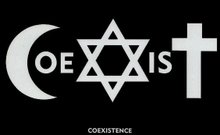 Elders and deacons in the early church were people who already served the church in a certain capacity according to gifting and were then recognized for it. They also were not limited to these roles or labels. For example, Stephan is considered to be the first deacon, but we know that while he aided the elders and served many, he also preached the gospel publicly and performed signs and wonders with authority.
Elders and deacons in the early church were people who already served the church in a certain capacity according to gifting and were then recognized for it. They also were not limited to these roles or labels. For example, Stephan is considered to be the first deacon, but we know that while he aided the elders and served many, he also preached the gospel publicly and performed signs and wonders with authority.
"And Stephen, full of grace and power, did great wonders and signs among the people" (Acts 6:8)... "they could not withstand the wisdom and the Spirit with which he spoke..." (Acts 6:10).
So just because one serves others, does not preclude them from leading, preaching, or teaching. One can both be a "foot washer" and a bold leader in the church. That is the beautiful counter-cultural, counter-worldly possibilities of the redemptive gospel, where authority and service is shared and determined by giftings, not "status" or the amount of power you can exercise over another. We submit ourselves to others, cooperating with each other, and all ultimately [should] submit to Christ.
"Requirements" for Elders and Deacons.
Paul leaves Timothy on in Ephesus and Titus on in Crete to appoint elders and deacons and to combat widespread false teachings. Paul wants capable believers to fulfill these roles. Desired attributes for elders and deacons are found in
1 Timothy 3 and
Titus 1.
The words for "elder/bishop"
is
presbyter/epikosmos and are masculine, as is the word
diakonon, the word for deacon. Before "elder" became a leadership role in the church, it literally meant, "the aged" or "the elderly." However, the ministry of elders did not require a candidate to be literally old, but older or more mature
in the faith. This is how the term elder was coined. Similarly,
diakonon is masculine and literally means "servant" or "minister." This was a fitting title for this specific leadership role within the church because of Christ's admonishment found in
Matthew 20:25-28:
But Jesus called them to Himself and said, “You know that the rulers of the Gentiles lord it over them, and those who are great exercise authority over them. Yet it shall not be so among you; but whoever desires to become great among you, let him be your servant. And whoever desires to be first among you, let him be your slave— just as the Son of Man did not come to be served, but to serve, and to give His life a ransom for many.”It should be noted that
diakonon became an "official" word among Christians referring to a specific ministry/leadership role within the church and not just anyone who serves others, for ALL christians are called to become servants. But the mark of leadership in the Church should be through SERVICE to others, not the ability to control others and give orders.
presbyter and
diakonon, while masculine in nature, are used in the early church, much how
ekklesia and
adelphos are used.
Ekklesia, a feminine noun, means church or more literally,
"the called out ones." Even though this word is feminine, we know that when
ekklesia is used in scripture it includes men, too.
Adelphos, masculine, is translated as brethren, and was also used to include both women and men when speaking of believers. We will see in the another post that Phoebe was called a
diakonon, in it's masculine form, even though she is clearly a woman.
Presbytera, the feminine of
presbyter, appears in
1 Tim. 5:2, while the masculine form occurs in the preceding verse (
5:1). If 1 Tim. 5:1 refers to
an elder who is to be entreated as a father (as indicated in older versions), then verse 2 refers to a woman elder who is to be entreated as a mother.
This next commentary I found through a commenter of CBE.
In 1st Timothy Chapter 3 and 5:17-19, Paul outlined in detail the office of the presbyter (elder). "After completing his list of qualifications for bishops and deacons (I Tim 3:1-10), he continued by including the women when he said, "qunaikas hosautos" or "women likewise." Hosautos links the entire list of qualifications into one single theme. It links the deacons with the bishops in verse 8 and then links them to women in verse 11. The usual translation for presbyter (elder) is "older men" and "older women" but the Greek word is the same one used for elders everywhere. If consistency is to be maintained, then "presbutero" and "presbuteras" should be translated as men presbyters and women presbyters. A more nearly correct translation would be, "Do no sharply rebuke a male presbyter, but appeal to him as a father, to the young men as brothers, women presbyters as mothers, and the younger women as sisters, in all purity."
Catherine Kroeger, a bible scholar, speaks about the existence of female elders in the early church"
"Titus (2:3-5) also gives a list for those who hold the title of presbytis, the feminine word that
corresponds to the masculine presbytes. In some versions presbytes is translated elder,
while the feminine term in the next verse is rendered "old woman." Though often translated
as "old woman," presbytis was used in early Christian literature to denote female presbyters
(Lampe, Patristic Greek Lexicon lc 2B). There is a qualification list for these women: reverent
in life style, not slanderers or addicted to much wine. They must be hieroprepeis (worthy of
the priesthood), again an indication of fitness for a special office.They were also to be
"teachers of good things.""
While Paul admonishes older women to teach younger women, he does not limit their teaching.
In a world where the sexes were segregated in nearly all aspects of life, even in the home
(separate entrances and rooms for each sex), naturally women would be teaching women more
than they would men. But this is not because women teaching men is inherently wrong, but it
was just not practical in this culture. However, women could easily gain entrance to certain
sectors of society and bring the gospel to places that men could not always, such as leper colonies
and other places where the poor and sick were kept, including men.
Paul also instructs older men to teach younger men, but we would never conclude that this limits
older men from teaching the entire congregation when they gather. It is common sense that
older men would be natural mentors to younger men and older women would be mentors to
younger women. This, however, does not mean they have nothing to offer the opposite sex when
teaching the Gospel or using their gifts in midst of the entire body.
Also, every other passage dealing with presbyteros in the pastorals is taken to refer to
officeholders, including two passages in this same chapter of 1 Timothy (5:17, 19).
The main reason cited for excluding women from serving as deacons and elders is the phrase
mias gunaikos andra translated in most English versions as "husband of one wife," which is
viewed as a requirement for eldership and deaconship. Since women cannot be the "husband of
one wife," it is assumed that only men are permitted to perform these roles within the church.
People who use the
"husband of one wife," clause to exclude women from this role, must also then use it to exclude single men, remarried men, widowers, and men without children or men with only one child or still young children. These admonishments from Paul are not so much qualifications are they are disqualifications for people certain scenarios, i.e., men with multiple wives, rebellious children, and so forth, not that they have to HAVE a wife and children, but IF they do, this is what is acceptable.
"The husband of one wife," clause seems not to be a qualification, but a
disqualification for polygamist men.
The options of
"husband of one wife"--
A man must be presently married to one wife, in other words, he cannot be a polygamist, Polygamy was common among MEN in Roman, Greek and even Jewish culture. It is the only gender-related
"requirement," and since men were the only ones allowed to have more than one spouse, it is natural that Paul would only direct it to the man. The rest of the qualifications are all in gender-neutral language in the original Greek with words like
tisi, which means person or one. Although most English translations use the the pronoun "he," the original greek uses the word "one."
We know polygamy existed in the culture. When people were converted it was from that culture, and the problems of the culture were promptly imported to the church.
If one maintains that a man MUST be married in order to serve as an elder in the church, this is problematic for a few reasons. One Paul, who was notoriously single, would be excluding himself from this office, even though he refers to himself as an elder in Philemon 1:9. Where Paul applies it to himself (
"I Paul, the elder"). Many English versions simply translate this verse as
"I Paul, the aged" or
" an old man," but the word in the Greek is
presbyters, the word Paul regularly uses to describe a leadership role in the church. In the context of this verse, he is appealing to the church to heed his words because
he is an elder, not just because he is literally old.
Plus, Paul views singleness as an asset to ministry, not a hindrance. In 1 Corinthians 7, Paul wrote that he wished everyone could be like himself, celibate and single, so they could serve the Lord without distraction or divided interests. Would Paul wish everyone to be this way and yet forbid the ones who were single from filling such a key leadership role?
Catherine Kroeger also believes the husband of one wife clause was meant specifically to disqualify polygamous men from serving in this capacity.
"The direction that a male elder have only one wife appears to serve as a specific disqualification for those with multiple wives. It is not necessary, however, for an elder to be married at all. Indeed, the Apostle Paul maintained that his singleness gave him far greater freedom to further the cause of Christ (1 Cor 7:32-35)."
The next posts will look at women deacons and elders throughout church history and Phoebe, who Paul calls a deacon. Forgive me for the length, but it's been quite a while since I've posted anything of substance. :)
 "I see this same dynamic at play in the church today. So many Christians (both liberal and conservative) are disgusted to be in “exile” amidst the sinful, secular, bastions of empire. They curse the culture, they curse the government, and metaphorically hang up their harps and withdraw from the system. Since the system is evil, they choose to wash their hands of it and refuse to get involved."--Julie Clawson
"I see this same dynamic at play in the church today. So many Christians (both liberal and conservative) are disgusted to be in “exile” amidst the sinful, secular, bastions of empire. They curse the culture, they curse the government, and metaphorically hang up their harps and withdraw from the system. Since the system is evil, they choose to wash their hands of it and refuse to get involved."--Julie Clawson















